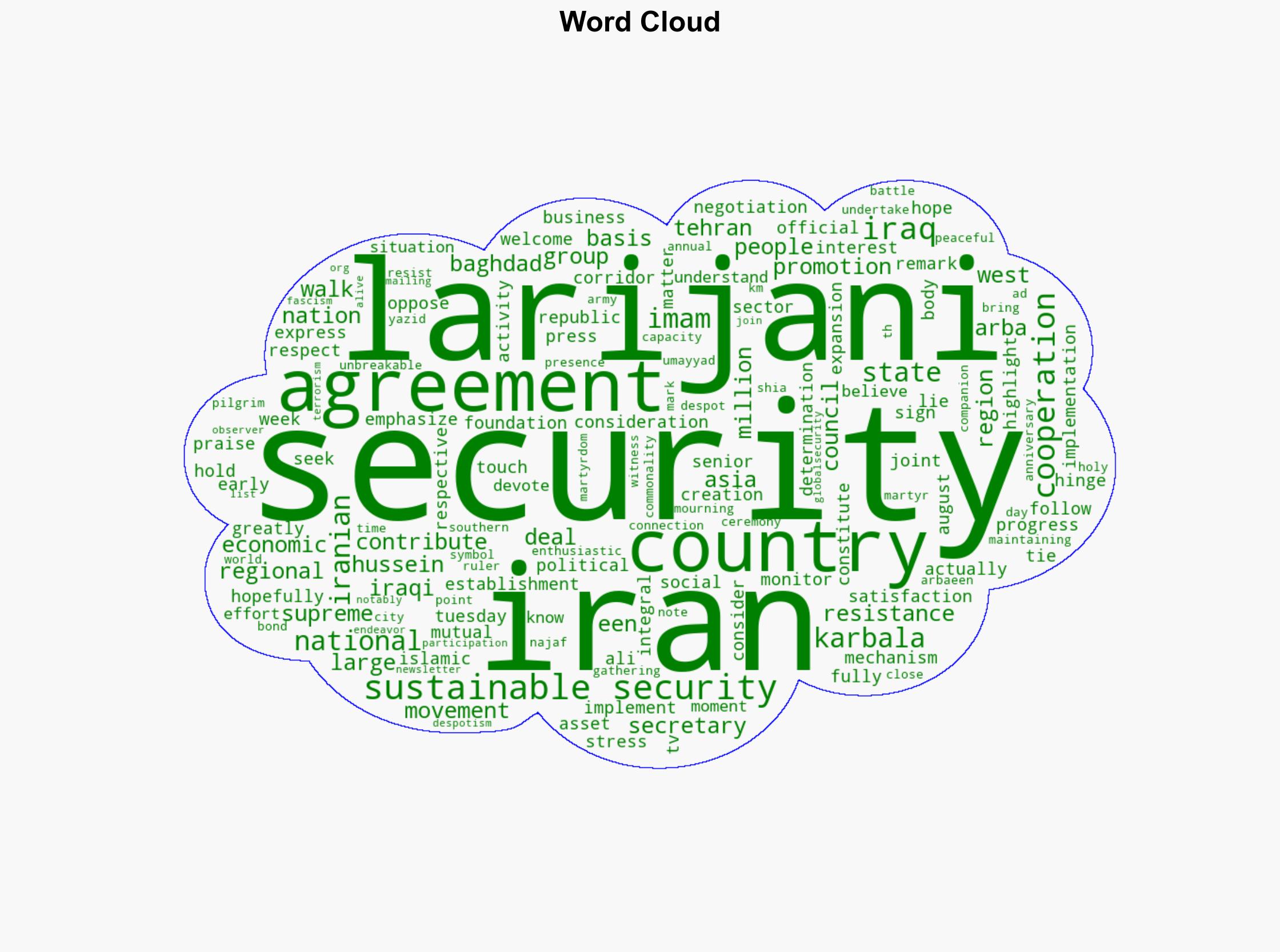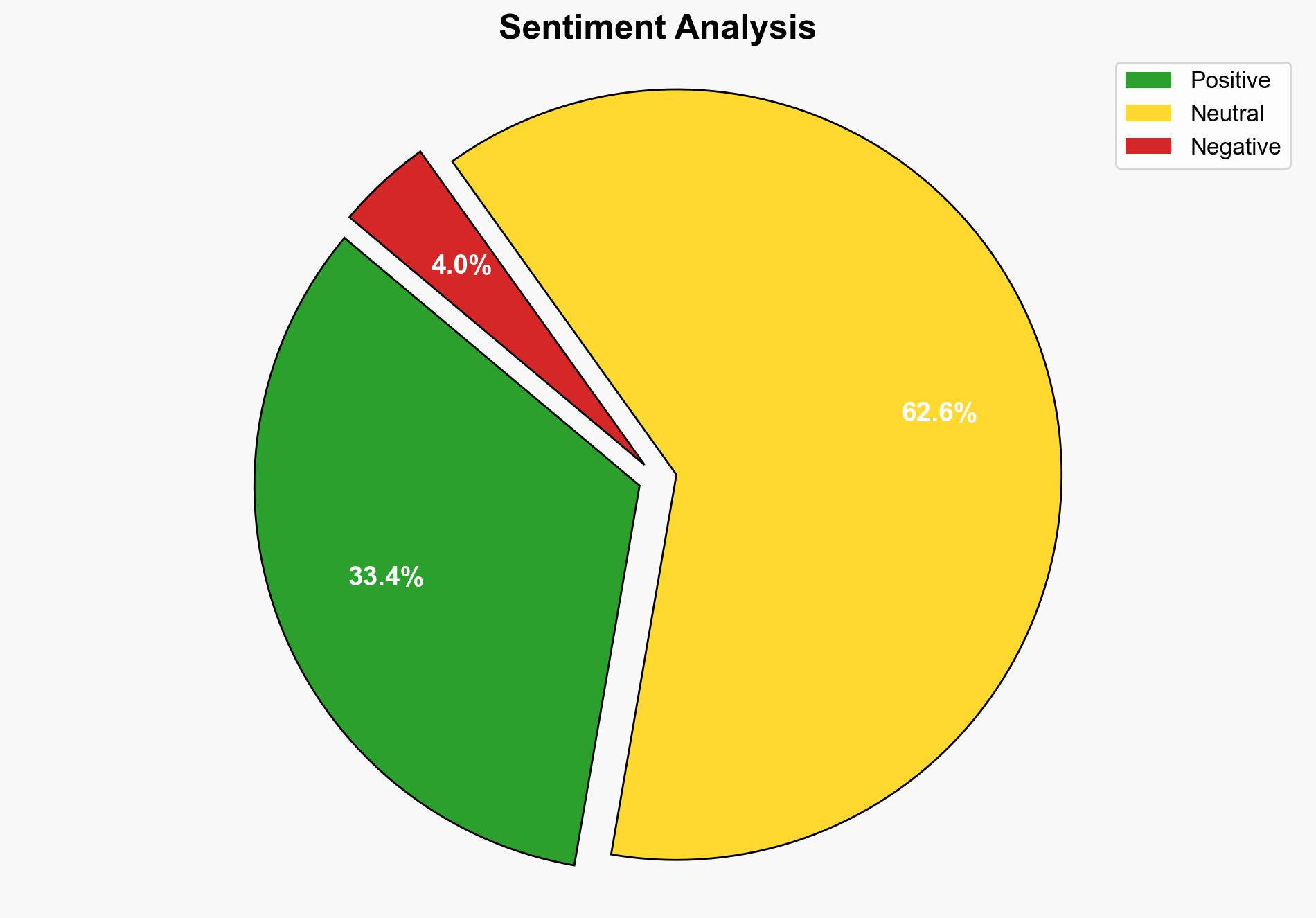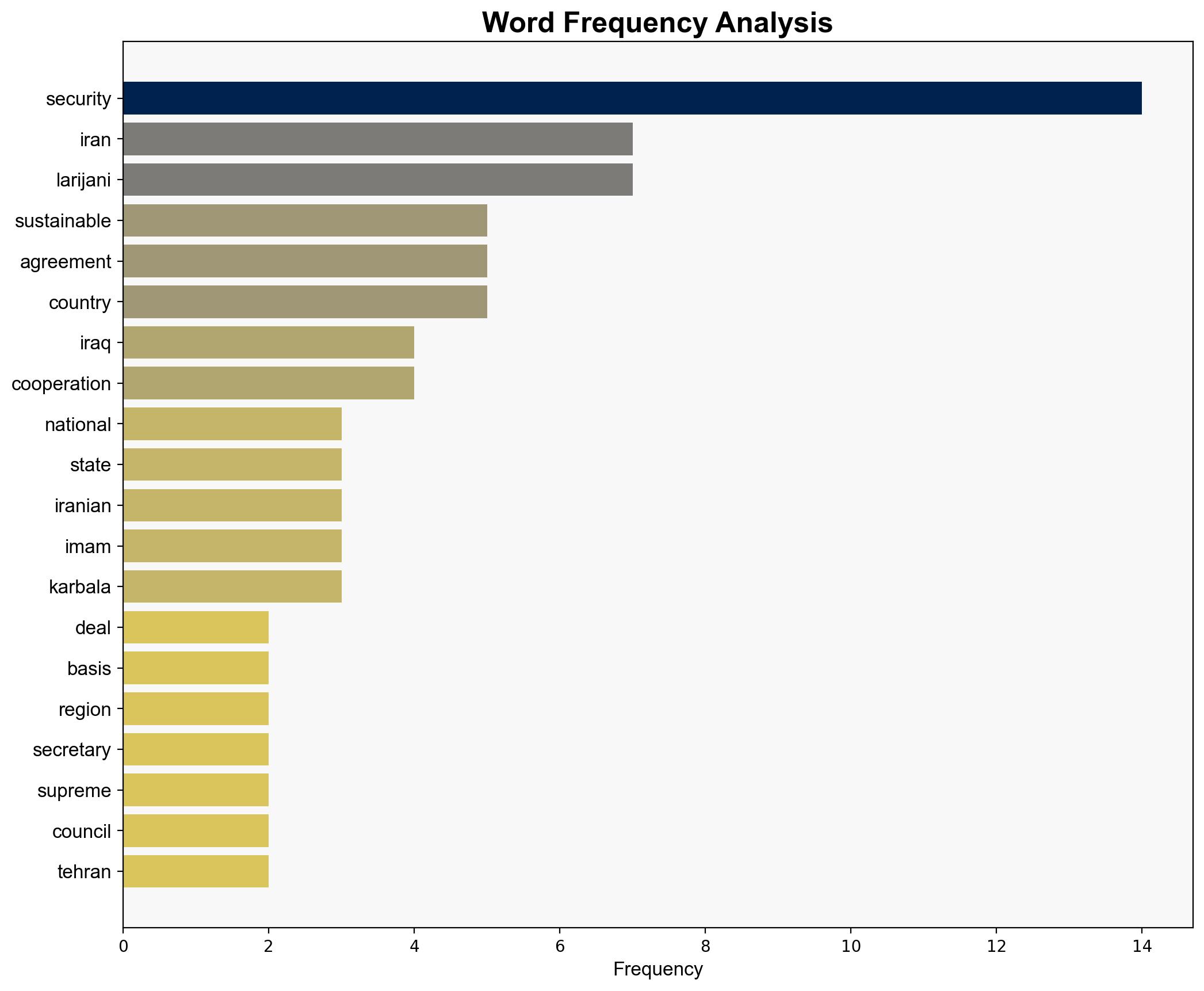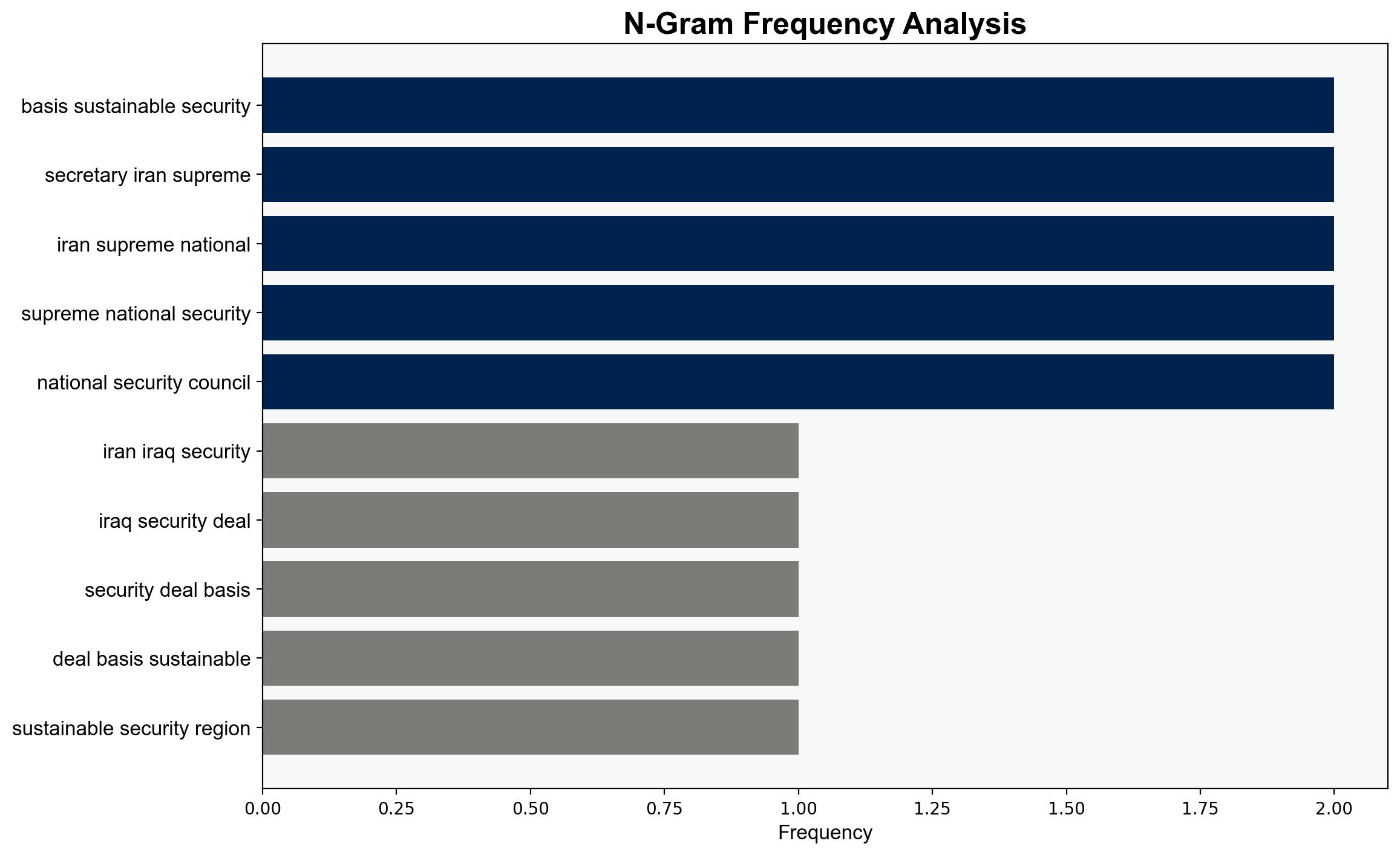Iran-Iraq security deal provides basis for sustainable security in region Larijani – Globalsecurity.org
Published on: 2025-08-13
Intelligence Report: Iran-Iraq security deal provides basis for sustainable security in region Larijani – Globalsecurity.org
1. BLUF (Bottom Line Up Front)
The Iran-Iraq security deal is likely aimed at enhancing bilateral cooperation and establishing a framework for sustainable security in the region. The most supported hypothesis suggests that the agreement is a genuine effort to stabilize the region, though underlying strategic interests may complicate its implementation. Confidence level: Moderate. Recommended action: Monitor implementation closely and assess regional reactions.
2. Competing Hypotheses
1. **Hypothesis A**: The Iran-Iraq security deal is a genuine effort to establish sustainable security in the region, focusing on economic, social, and political cooperation to stabilize West Asia.
2. **Hypothesis B**: The deal serves as a strategic maneuver by Iran to expand its influence in Iraq and the broader region, potentially undermining regional stability by supporting resistance groups.
Using the Analysis of Competing Hypotheses (ACH) 2.0, Hypothesis A is better supported by the emphasis on economic and social cooperation and the mutual interest in stabilizing the region. However, Hypothesis B cannot be dismissed due to Iran’s historical strategic interests in the region.
3. Key Assumptions and Red Flags
– **Assumptions**: The agreement will be implemented as stated, and both countries have aligned interests in regional stability.
– **Red Flags**: Historical tensions and Iran’s support for resistance groups could undermine the agreement. The lack of specific implementation details raises concerns about the deal’s enforceability.
– **Blind Spots**: The potential reaction of other regional powers and their influence on the agreement’s success is not addressed.
4. Implications and Strategic Risks
– **Economic**: Enhanced cooperation could lead to economic growth, but instability could deter investment.
– **Geopolitical**: The deal may shift regional power dynamics, potentially provoking responses from other regional actors.
– **Psychological**: Public perception in both countries will be crucial; failure to deliver tangible benefits could lead to disillusionment.
– **Potential Escalation**: If perceived as a threat, neighboring countries might increase their military presence or support counter-groups.
5. Recommendations and Outlook
- Monitor the implementation of the security deal and regional responses closely.
- Engage in diplomatic dialogues with other regional powers to mitigate potential tensions.
- Scenario Projections:
- Best Case: Successful implementation leads to regional stability and economic growth.
- Worst Case: The deal exacerbates regional tensions, leading to increased conflict.
- Most Likely: Partial implementation with mixed outcomes, requiring ongoing adjustments.
6. Key Individuals and Entities
– Ali Larijani
– Iran’s Supreme National Security Council
– Tehran and Baghdad governments
7. Thematic Tags
national security threats, regional cooperation, geopolitical strategy, economic collaboration





